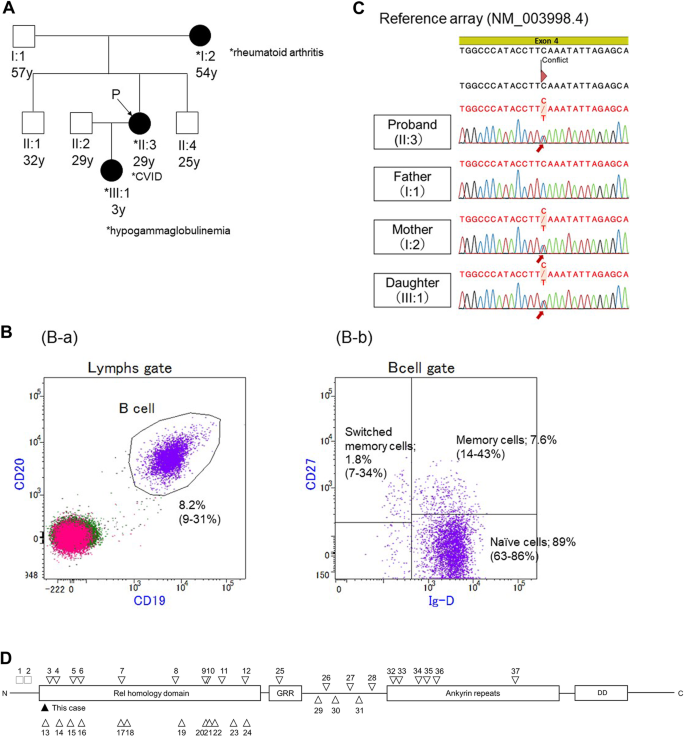A novel NFKB1 variant in a Japanese pedigree with common variable immunodeficiency.
IF 1
Q4 GENETICS & HEREDITY
引用次数: 0
Abstract
Recently, heterozygous loss-of-function NFKB1 variants were identified as the primary cause of common variable immunodeficiency (CVID) in the European population. However, pathogenic NFKB1 variants have never been reported in the Japanese population. We present a 29-year-old Japanese woman with CVID. A novel variant, c.136 C > T, p.(Gln46*), was identified in NFKB1. Her mother and daughter carried the same variant, demonstrating the first Japanese pedigree with an NFKB1 pathogenic variant.

日本常见变异性免疫缺陷症血统中的一种新型 NFKB1 变异体。
最近,在欧洲人群中发现,杂合性功能缺失 NFKB1 变异是导致常见变异性免疫缺陷症(CVID)的主要原因。然而,在日本人群中从未报道过致病性 NFKB1 变体。我们介绍了一名患有 CVID 的 29 岁日本女性。在 NFKB1 中发现了一个新变异,c.136 C > T, p. (Gln46*)。她的母亲和女儿也携带相同的变异体,这是日本首个出现 NFKB1 致病变异体的血统。
本文章由计算机程序翻译,如有差异,请以英文原文为准。
求助全文
约1分钟内获得全文
求助全文
来源期刊

Human Genome Variation
Biochemistry, Genetics and Molecular Biology-Genetics
CiteScore
2.30
自引率
0.00%
发文量
39
审稿时长
13 weeks
 求助内容:
求助内容: 应助结果提醒方式:
应助结果提醒方式:


